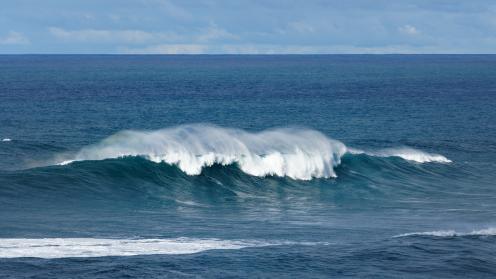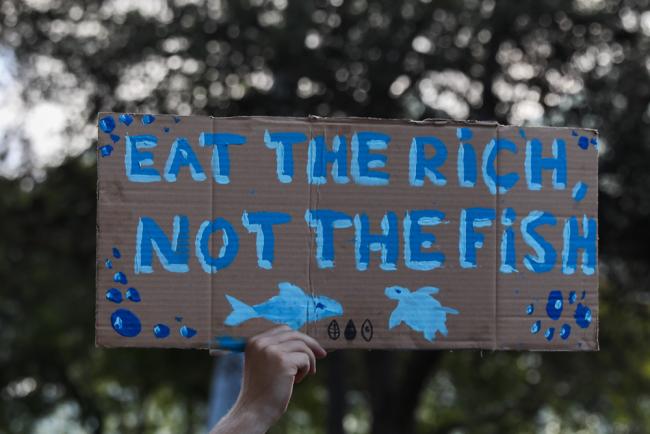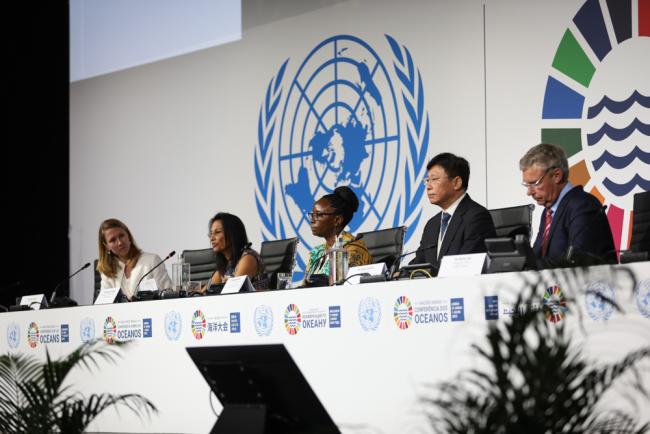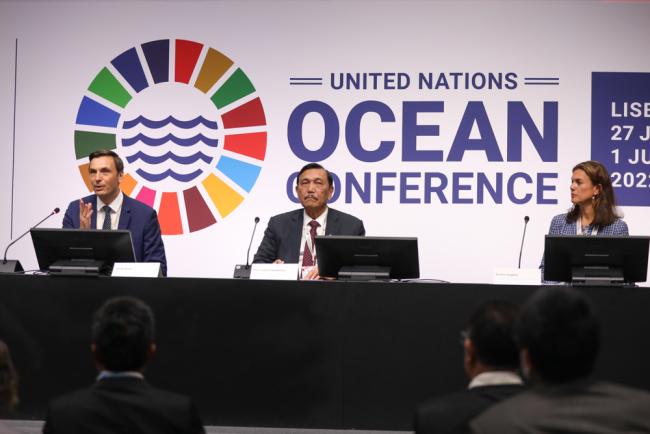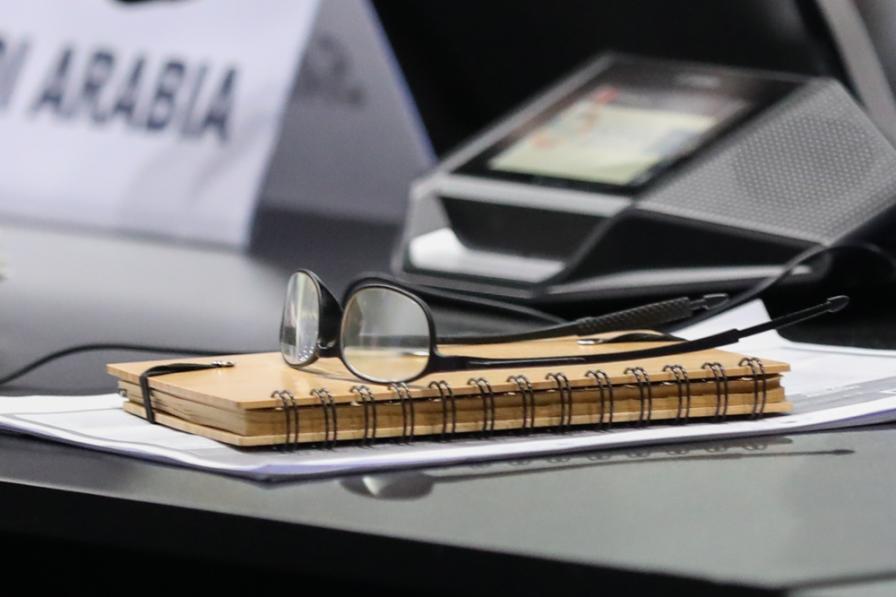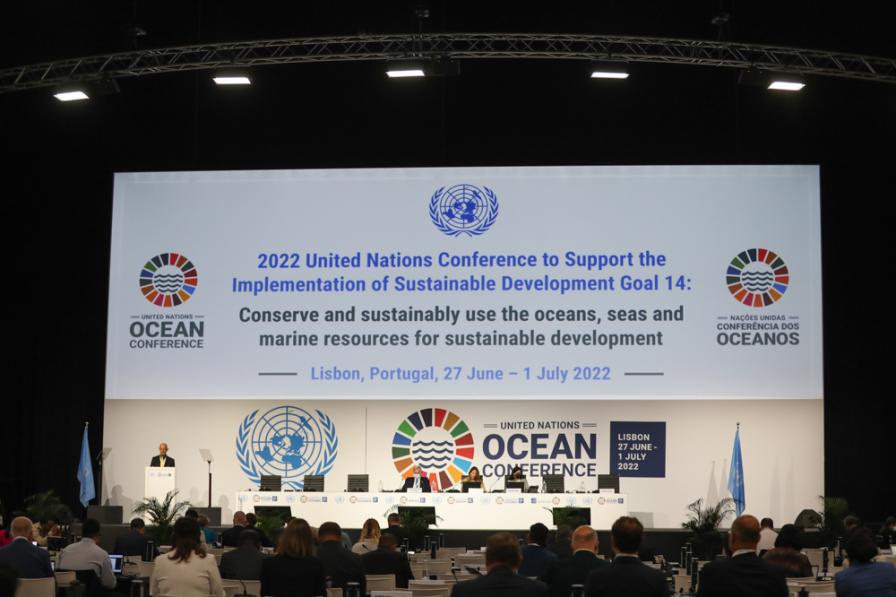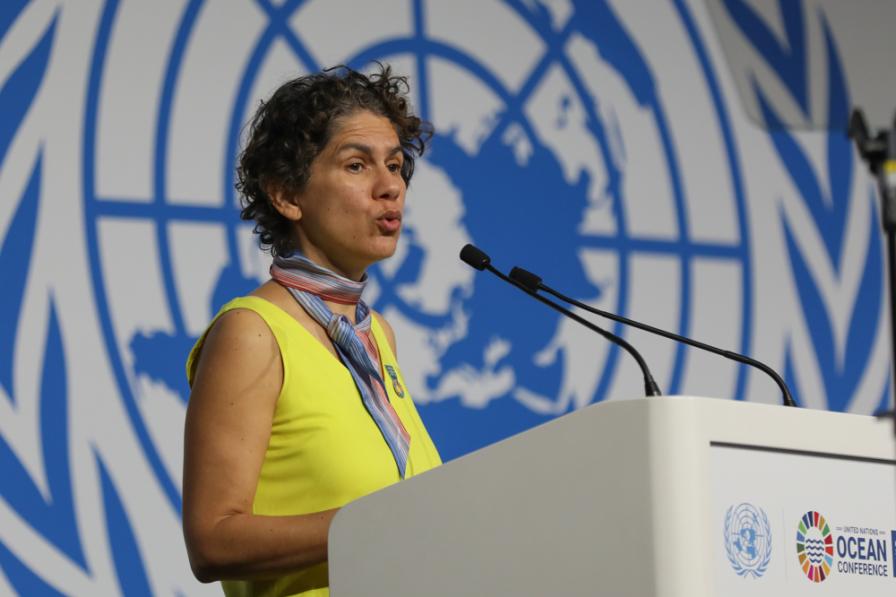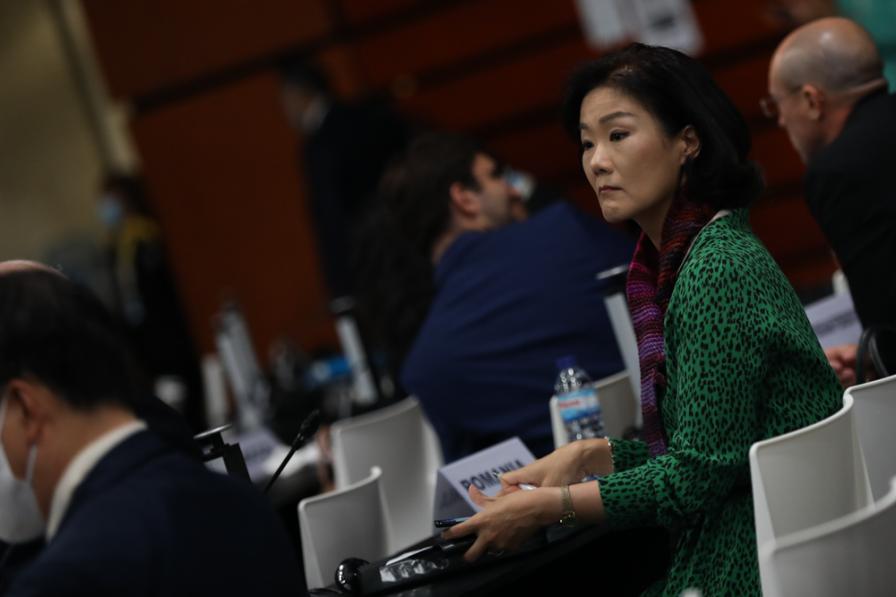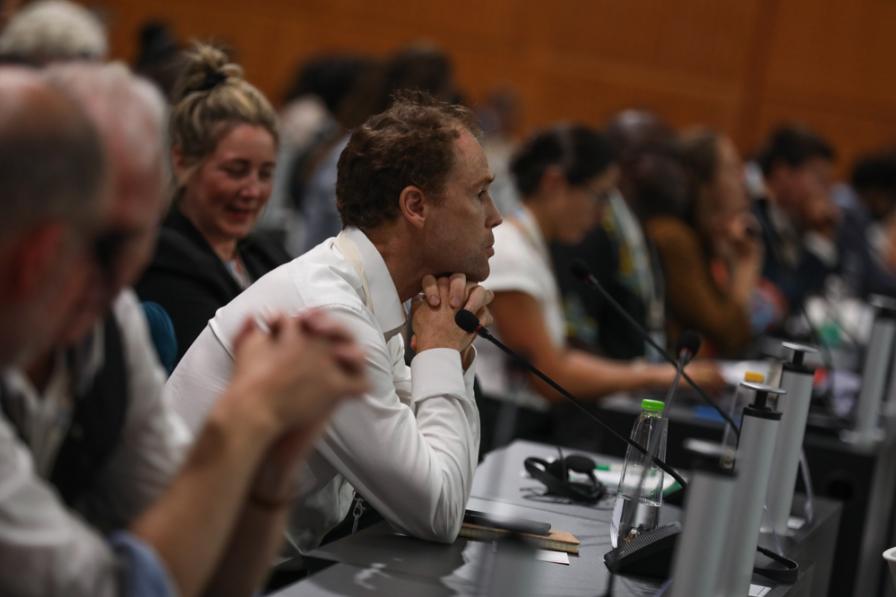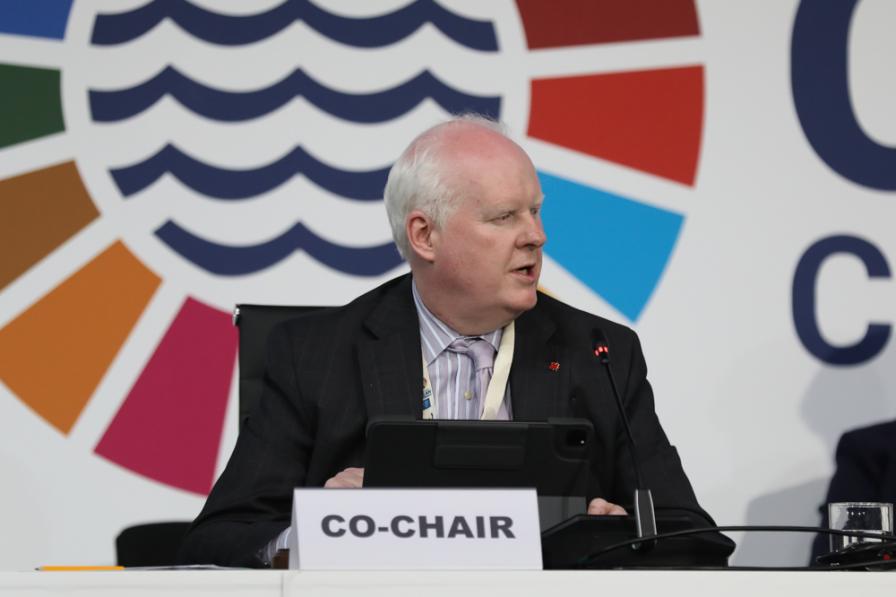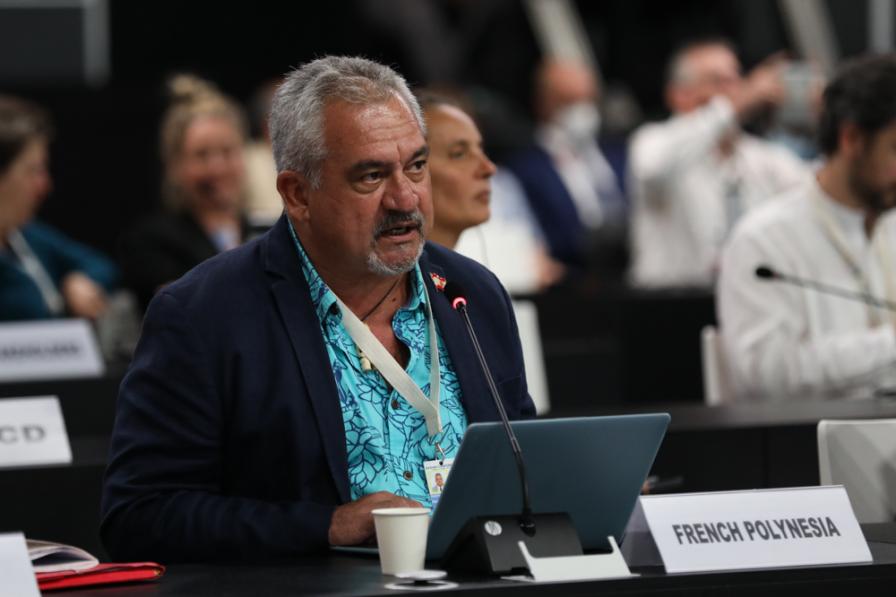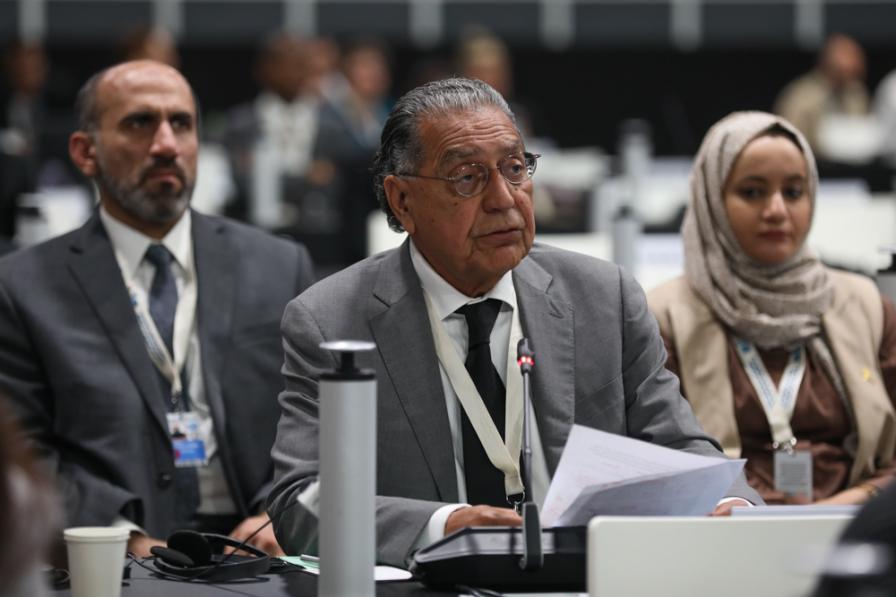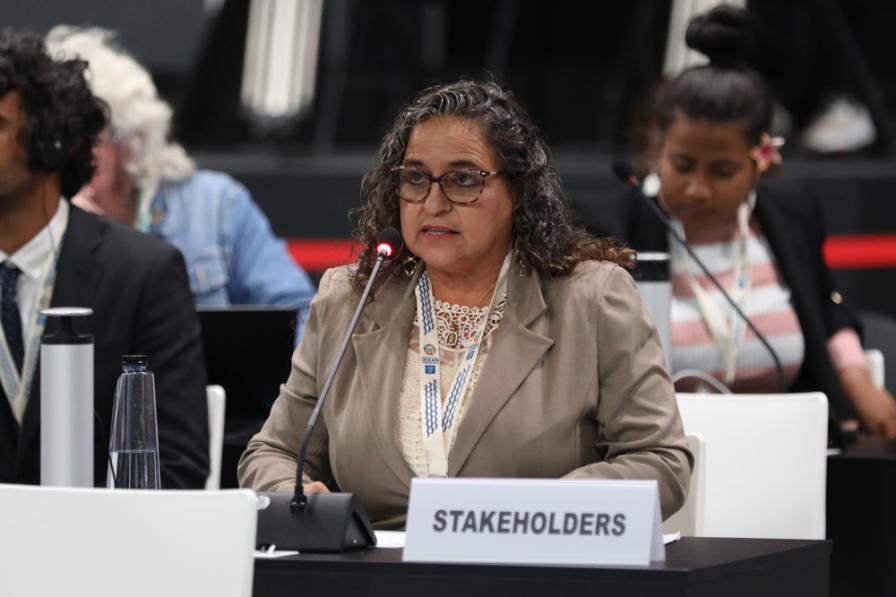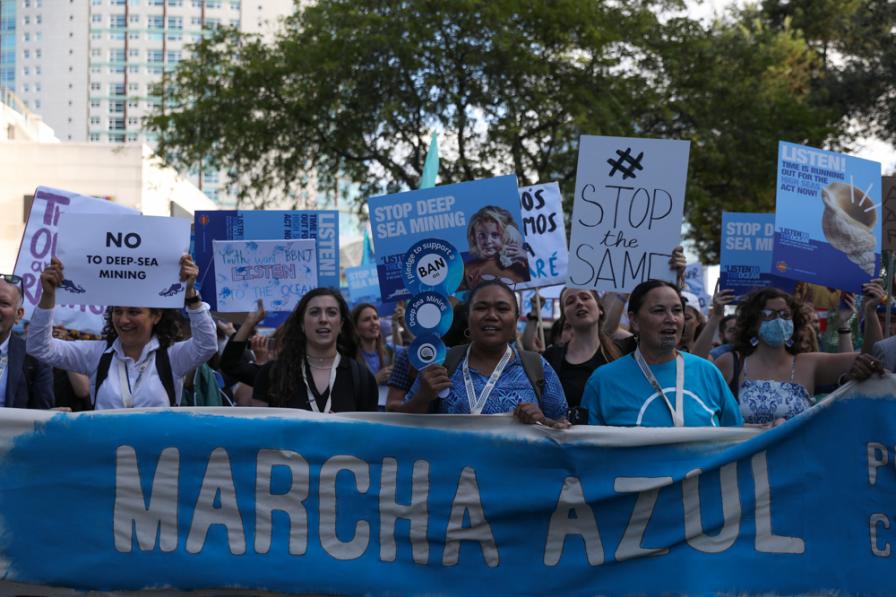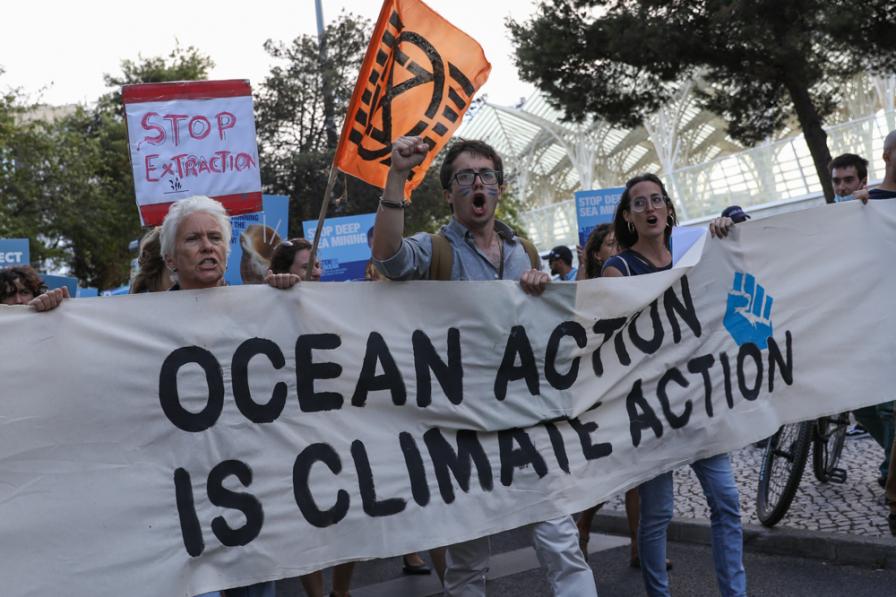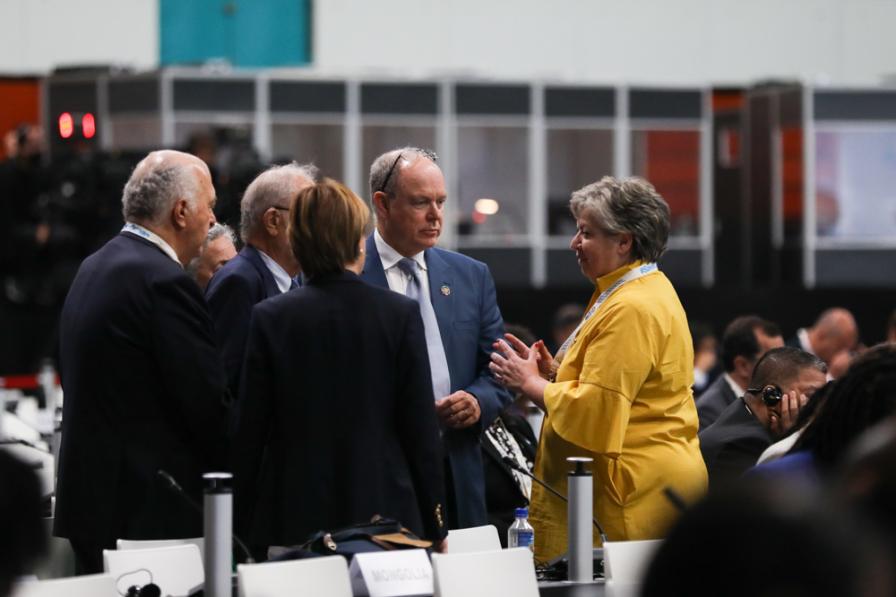On Wednesday, delegates at the second UN Ocean Conference continued to hear statements in the general debate in plenary. They also attended two interactive dialogues in the morning and afternoon and attended side events and special events that met through the day. The launch of the 2022 State of World Fisheries and Aquaculture (SOFIA) report took place during the lunch break.
During the general debate, as delegates continued to announce voluntary contributions, the Group of 77 and China (G-77/China) called for a “UN Framework Convention on Climate Change (UNFCCC) for the oceans,” explaining that robust institutional arrangements of this nature could potentially assist in achieving all the targets under Sustainable Development Goal 14 (conserve and sustainably use the oceans, seas and marine resources for sustainable development).
To dive deeper, read the full Earth Negotiations Bulletin daily report.
Delegations shared a plethora of national ocean actions, including increasing coverage of marine protected areas (MPAs) all over the world. They also shared actions, such as a “Zero Waste Blue” project in Türkiye to address marine litter, a research and development initiative on coral in Saudi Arabia, and an initiative to make the Panama Canal carbon neutral by 2030. The European Commission announced 50 new voluntary commitments, worth EUR 7 billion, including for the conservation of marine biodiversity in the high seas.
In the first interactive dialogue on ocean acidification, deoxygenation and ocean warming, delegates discussed, among others, the need for: accessible information and data for ocean action; a loss and damage financial facility; and replacing resource-intensive food production with seaweed.
In the second interactive dialogue on making fisheries sustainable and providing access for small-scale artisanal fishers to marine resources and markets, delegates discussed, inter alia: the role of women in small-scale fisheries; innovative arts-based research that promotes stakeholders listening and connecting; and the need for increased investment and research for a blue food system.
As one of the many events and announcements on the sidelines of the meeting, the Government of Indonesia and the Alliance to End Plastic Waste launched an initiative to improve waste management and help the country reduce marine plastic waste leakage by 70% by 2025 and achieve near-zero plastic waste pollution by 2040.
Wednesday’s Voluntary Commitments
- The Protecting Our Planet Challenge will invest at least USD 1 billion to support the creation, expansion and management of marine protected areas and Indigenous and locally governed marine and coastal areas by 2030.
- Greece launched the European Research Centre for Alternative Marine Fuels.
- Monaco launched the Monk Seal Alliance in 2019 aiming to protect the Mediterranean species and its habitats, providing EUR 2.7 million by 2024.
- Pakistan will designate an area of 27,000 square kilometers as another MPA in the Indus River Canyon.
- Italy is launching a project of EUR 400 million to consolidate and expand the national system of protected areas.
- Panama commits to increasing its protection of at least 40% of the marine surface area by 2030.
- Australia is committing USD 1.2 billion to preserve and restore the Great Barrier Reef.
- Chile is working with specialized centers to develop a network of green corridors for maritime transport to achieve zero-carbon shipping.
- Sweden commits to reach 100% renewable production by 2040, including offshore wind energy, and will also support enhanced scientific cooperation, including by providing USD 400,000 in 2022 to IOC UNESCO for the UN Decade on Ocean Science.
- The US and Jamaica announce that they will be joining the International Alliance to Combat Ocean Acidification.
All ENB photos are free to use with attribution. For the 2022 UN Ocean Conference, please use: Photo by IISD/ENB | Kiara Worth.
To receive free coverage of global environmental events delivered to your inbox, subscribe to the ENB Update newsletter.
